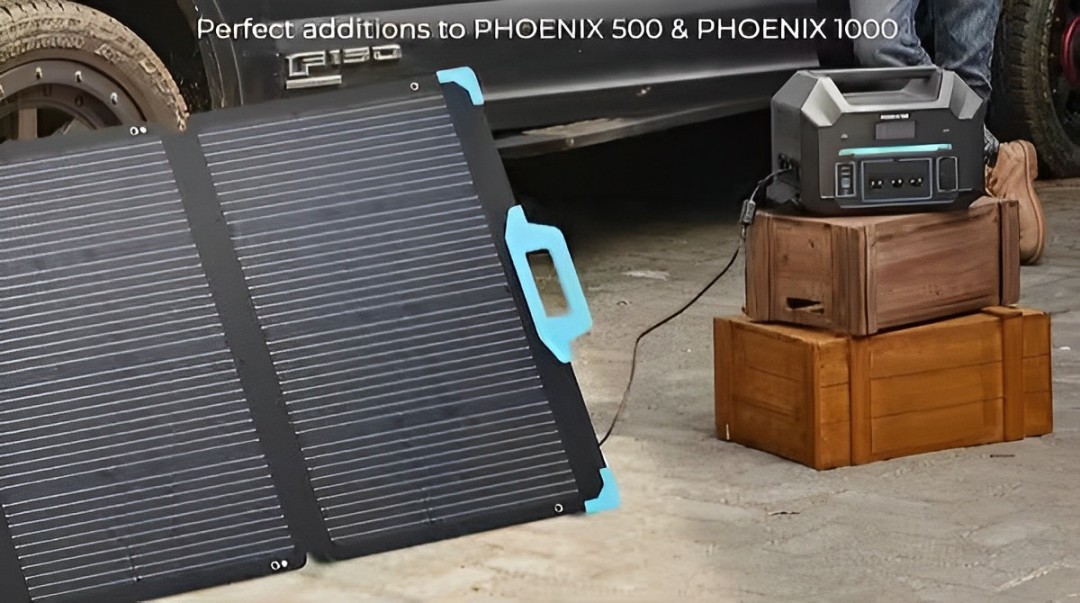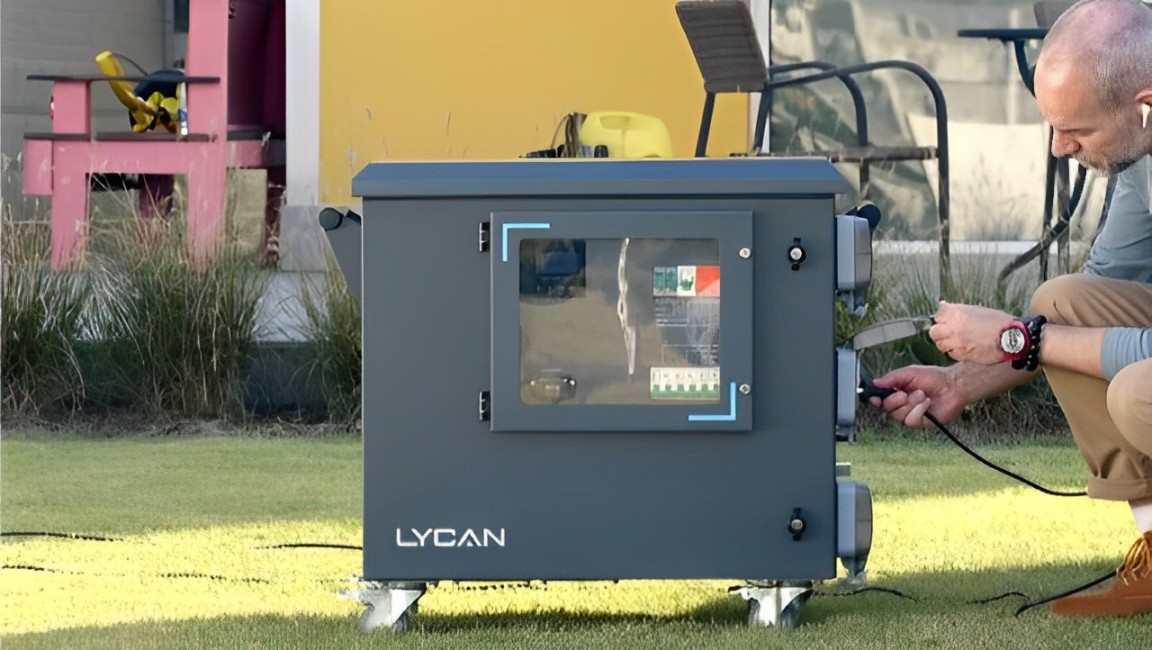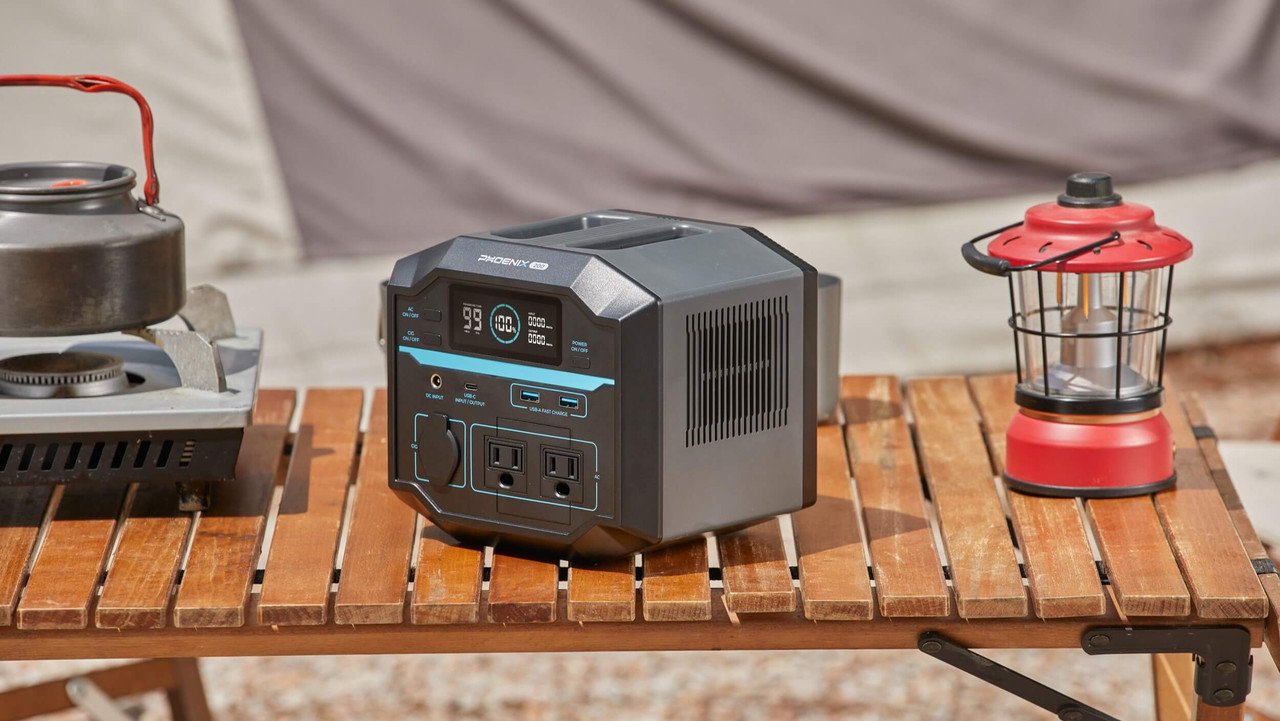How Does a Solar Generator Work?
Ever wondered how a solar generator harnesses the sun's power to keep your devices running? These portable powerhouses combine solar panels, batteries, and inverters to create a clean, renewable energy solution. A solar generator collects solar energy using solar panels and stores it in a built-in solar battery. Solar generator, like our Elite Portable Solar Generator, are the best off-grid solution for off-grid camping or emergencies. Let’s understand how does a solar generator works can help you make the most of this eco-friendly technology.
What is a solar generator?
A solar generator is a portable power station that converts sunlight into electricity by solar panels. Unlike traditional gas-powered generators, solar generators are clean, quiet, and environmentally friendly. They consist of three main components:
- Solar Panels: They collect sunlight and use it to generate electricity.
- Battery: Stores the converted energy for later use.
- Inverter: Transforms the stored DC power into AC power, which is used by most household appliances.
Solar generators come in various sizes, from small units perfect for charging phones and laptops to larger systems capable of powering refrigerators and power tools. They're ideal for:
- Camping and outdoor activities
- Emergency backup power during outages
- Off-grid living
- Reducing carbon footprint in daily life

How does a solar generator work?
The process of how a solar generator works begins with the solar panels. These panels are made up of photovoltaic cells that capture sunlight and convert it into electrical energy. This is the foundation of how a solar power generator works.
Once the sunlight is captured, the solar generator converts it from DC (direct current) to AC (alternating current) power. Because most domestic equipment depend on AC power, this conversion is essential. But how does a solar generator work when the sun isn't shining? The answer lies in the battery. The converted energy is stored in a battery for later use, allowing you to have power even after sunset or on cloudy days.
When you need to use the stored energy, the solar generator's inverter comes into play. It adjusts power output to ensure a consistent and safe supply of electricity to the devices you use. As long as there's sunlight, solar generators work continuously. They capture solar energy, convert it, store it, and distribute it as needed, creating a sustainable power cycle.
Understanding how solar generators work helps in appreciating their versatility. They are beneficial for outdoor activities such as camping, emergency backup power, off-grid living, and minimizing dependency on the primary power grid. This wide range of applications demonstrates the flexibility of how solar generators work in various scenarios.
Several factors influence how efficiently a solar power generator works. These include sunlight intensity and duration, panel size and quality, battery capacity, and inverter efficiency.
Difference between Solar generator vs gas generator
When considering portable power solutions, many people find themselves weighing the options between solar generators and gas generators. Understanding how solar generators work compared to their gas counterparts can help you make an informed decision. Let's explore the key differences between these two types of generators.
Fuel Source: The most fundamental difference lies in how these generators work. Solar generators capture the sunshine and transform it into electrical power that may be used. This renewable energy source is free and abundant. In contrast, gas generators rely on fossil fuels, typically gasoline or propane, which need to be purchased and replenished regularly.
Noise Level: One of the most noticeable differences in how solar generators work compared to gas generators is the noise level. Solar generators operate silently, as they have no moving parts. This makes them ideal for camping, outdoor events, or use in residential areas. Gas generators, however, can be quite loud due to their internal combustion engines.
Portability: Both types of generators come in portable models, but solar generators are often lighter and easier to transport. They don't require carrying extra fuel, which adds to the portability factor. Understanding how solar generators work can help you appreciate their convenience in various settings.
Costs of a solar generator
The price of a solar generator varies greatly depending on its capacity and features. Portable solar generators designed for small appliances and outdoor use typically range from $300 to $600. Larger systems, capable of powering essential home appliances during outages, can cost anywhere from $1,000 to $5,000 or more. For example, the Lycan 5000 Power Box is highly recommended. It offers excellent performance and capacity, making it a great choice for ensuring power during emergencies. While some solar generators are plug-and-play, others may require professional installation. Installation costs can add a few hundred dollars to the initial expense, depending on the complexity of the setup and whether additional components, such as extra solar panels or battery storage, are needed.

Solar generators have minimal maintenance costs compared to traditional fuel-powered generators. The main expenses are occasional battery replacements and periodic cleaning of solar panels to ensure optimal performance. These maintenance tasks are relatively low-cost and infrequent, contributing to the overall affordability of solar generators. One of the significant advantages of solar generators is the potential for long-term savings. They have almost no operating costs since they use solar energy. Over time, this can lead to substantial savings on electricity bills, especially in regions with high energy costs. Additionally, many areas offer tax incentives and rebates for solar installations, which can offset the initial investment.
Benefits of using a solar generator
Using a solar generator offers numerous benefits, making it an attractive option for both residential and portable power needs.
Sustainability
One of the primary advantages of using a solar generator is sustainability. Solar generators harness energy from the sun, a renewable and abundant resource, reducing reliance on fossil fuels and lowering carbon footprints.
Cost Savings
While the initial investment might be higher, solar generators have minimal operating costs since they don’t require fuel. Over time, this leads to substantial savings on energy bills because solar energy is entirely free.
Easy Maintenance
Solar generators require less maintenance than typical gas generators. The main upkeep consists of infrequent battery changes and cleaning the solar panels to guarantee maximum performance, making them a handy and hassle-free choice.
Light and Easy
Solar generators are often designed to be portable and lightweight, making them easy to transport and set up. This portability is especially useful for outdoor activities like camping and emergency situations where quick power solutions are needed.
Quiet Operation
Unlike traditional gas generators that can be noisy, solar generators work quietly. This makes them ideal for residential use, especially in areas with noise restrictions, ensuring they can be used without disturbing your home environment.
Should you purchase a solar generator?
If you're considering a solar backup generator or a solar powered emergency generator, it's important to understand their role and limitations. Solar generators are ideal for small-scale energy needs, such as powering devices on a boat or camper. They offer a portable and clean energy solution, perfect for remote locations where traditional power sources are unavailable.
However, solar generators have limitations, including slower charging times and restricted power capacity. This means they may not be suitable for extensive home backup power needs. For comprehensive home energy solutions, a rooftop or ground-mounted solar system combined with a home battery system is recommended. This setup allows you to harness renewable energy effectively while ensuring a reliable power source for your entire home.
In summary, while a solar powered emergency generator can be a valuable addition for specific scenarios, it may not be the best choice for all power needs. Evaluate your requirements and consider a larger solar system if you're looking for a robust home energy solution.
Choosing the best battery for your solar generator
Selecting the right battery for your solar generator is crucial for optimizing performance and longevity. The market offers three primary battery types: lead-acid, lithium-ion, and saltwater, each with distinct characteristics and benefits.
Lead-acid batteries are the most common choice for solar generators due to their affordability. They are reliable and have a long history of use. However, they tend to have a shorter lifespan compared to newer technologies, which can lead to more frequent replacements. Due to their limited efficiency and shorter life, lead-acid batteries are less favored by high-end solar generator brands today.
Lithium-ion batteries are becoming increasingly popular in solar generators. They offer higher energy density and a longer lifespan, which translates to fewer replacements and better long-term value. While more expensive upfront, lithium-ion batteries charge more efficiently and minimize energy waste, making them a preferred choice for those seeking superior performance and reliability.
Saltwater batteries are the most recent breakthrough in solar energy storage. Utilizing salt electrolytes, these batteries boast high energy density and are an environmentally friendly option. However, as a newer technology still undergoing research and development, saltwater batteries are not yet widely adopted and may not be as readily available.
Conclusion
Solar generators stand out as a smart, green choice for anyone looking to boost their energy independence. They’re not just eco-friendly; they’re incredibly versatile and convenient, perfect for both planned adventures and unexpected outages. With no ongoing fuel costs and a simple setup, they’re as practical as they are sustainable. Choosing a solar generator means investing in dependable electricity that has a good influence on the environment. It's a win-win for your home and the environment.











